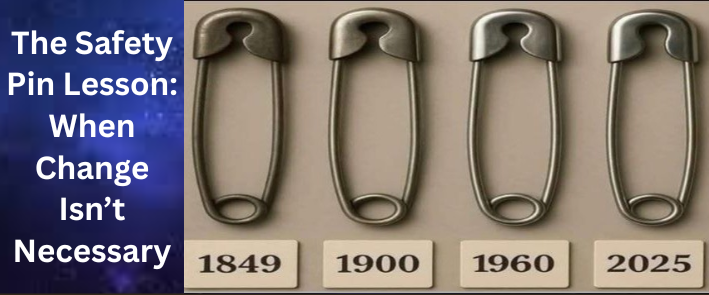.png)
.png)
.png)
Basic Human Aspiration is to be Happy & Prosperous, and it is continuous. Human Being is the coexistence of Mind (Self) and Body, and both go hand in hand. However, both types of needs have to be understood separately and to be fulfilled separately....
Read More Details
The humble safety pin, unchanged for over 175 years, whispers a deeper truth about the nature of change and innovation. In a world consumed by the desire to disrupt, reinvent, and transform, this small but mighty object offers timeless wisdom:...
Read More Details.png)
“The whole is more than the sum of its parts.†– Aristotle We often mistake the window for the sky. The mind is like a window through which the vastness of universal consciousness shines. Yet, because each window has its own...
Read More Details.png)
What do you mean by recreate yourself? You can rise up from anything. You can completely recreate yourself. If you are ready for change but not sure how to create it. Here is the formula CARE, simple steps to recreate...
Read More Details